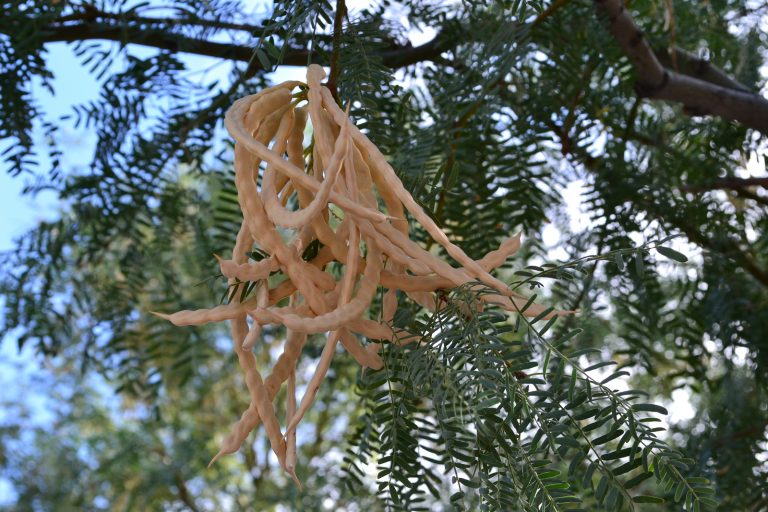The last 15 years have seen the arrival or rediscovery of such ‘designer’ flours as mesquite flour, rice flour, amaranth flour, even chickpea flour, each lending a unique flavor to a particular type of ethnic cuisine. These flours, especially the first, also offer gluten-intolerant consumers dietary alternatives.

Made from the pod (or bean) of the mesquite, a bush or small tree, this low-cal, high-value flour was first developed and used by Peru’s indigenous people.
Later, Native American inhabitants of the Desert Southwest discovered its value. To this day, the mesquite remains a boon to those living in America’s deserts – from the Chihuahuan Desert in southern New Mexico and southeastern Arizona to the Sonoran Desert spanning Arizona, California, and Mexico – who value native plants and their uses.
For example, in xeriscaping – also known as desert landscaping – the drought-tolerant mesquite provides food for humans and animals. The latter include bighorn sheep, antelope, ground squirrels, ravens, and quail. The blossoms provide nectar for bees (both wild and domesticated), and habitat for birds, notably hummingbirds.
Mesquite flour, made by drying and grinding the whole pod, is rich in the sweetness of fructose, or fruit sugar. In spite of that, it is surprisingly effective among diabetics in controlling blood sugar. This is because humans can process fruit sugars without the use of insulin.
Mesquite flour is also high in a type of natural gum that slows digestion from an average 1.5 hours to five, keeping blood sugar levels regulated.
If mesquite flour is not quite as common as rice flour, it is because the mesquite bush has armed itself with seriously painful thorns. Scientists speculate that this is an-ice age adaptation to prevent large animals like mastodons and ground sloths from eating the plant into extinction.
The defense still works today, but devoted mesquite flour advocates can arm themselves with knowledge. One good source might be the Moody Orchards-Arizona Mesquite Co., proprietor Mark Moody. The company not only makes its own mesquite flour, it also sells the wood to artisan carpenters around the globe. To buy their flour, call 928-851-1861 or skyrace999 @ gmail.com.
From a dietary standpoint, it is important to know that mesquite seeds (within the pods) are 40 percent protein. Add to that high values of calcium, iron, manganese, potassium, and zinc, and the wealth of soluble fibers, and mesquite flour tops even amaranth flour in nutrition. Moreover, mesquite flour is ‘total protein’; that is, it contains all eight essential amino acids.
A few cautionary notes to mesquite ‘newbies’:
- Taste a pod before picking a bush to make sure the flour will be palatable.
- Ripe pods are golden brown, like wheat, and snap like crisp celery when broken.
- Do not confuse mesquite with highly toxic black locust, or less palatable honey locust pods.
- Do not pick bushes located near traffic corridors, where exhaust is heavy or continuous. Also, do not pick near known locations for insect spraying, or off the ground, where highway runoff, animal waste, and other hazards can contaminate the pods.
- Pick before – or well after – the rainy season to avoid and/or prevent invisible toxic molds, or aflatoxins.
- Dry perfectly, then store beans in paper or cloth bags where safe from rodents. Food-grade plastic and metal buckets seal even more tightly, but may create mold if beans are not completely dry, so use bags and try hanging the bags from the rafters.
- Never mind the little holes in the pods, from which harmless beetles will emerge (after having eaten a few beans during its larval stage). Sharing is part of the new mindset some call ‘eco-eating’.
- Beans must be absolutely clean before milling operations will accept them
Recipes for mesquite flour baked goods can come from other enthusiasts, from gluten-free bakers, even from grocers who sell mesquite-flour foods. Recipes for baked goods are also available on Fill Your Plate; simply substitute one-third (or more) mesquite flour for wheat flour until the recipe ‘works’.
If all this sounds too labor-intensive for busy lifestyles, Moonrise Farms in Concho sells mesquite flour baked goods. In Prescott, the Crossroads Café serves some mesquite-based products. There is even an eatery in Washington, DC – the Mitsitam Café, in the National Museum of the American Indian – that advertises its mesquite flour-based foods.
Related articles
- Little Known Facts about Olive Oil (fillyourplate.org)
- Gifts for the Foodie in Your Life (fillyourplate.org)
- The Secret to Looking and Feeling Good (fillyourplate.org)
Blog managed by 23Kazoos.com.

